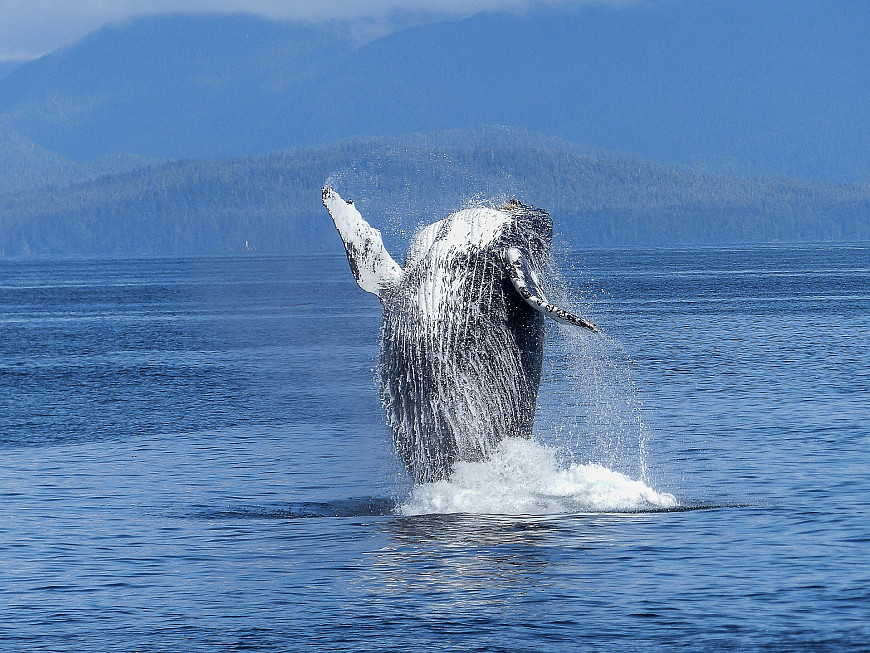Professor Chris Wold’s Global Contributions to Whale Conservation Law
Professor Chris Wold’s latest achievements in whale conservation law, including his recent Pace International Law Review article and his impactful blog for the European Journal of International Law, continue to shape international efforts to regulate and protect endangered whale populations.

Lewis & Clark Law School’s Professor Chris Wold has made significant strides in international conservation law, most recently focusing on the protection of whales amidst ongoing challenges in global whaling policies. His latest achievements, including a recent publication in the Pace International Law Review and his influential blog for the European Journal of International Law, highlight his role as a thought leader in the field of international environmental law, specifically in the regulation of whaling.
In his Pace International Law Review article, “40 Years After the Moratorium on Commercial Whaling: Assessing the Competence of the International Whaling Commission (IWC) to Confront Critical Threats to Cetaceans,” Professor Wold explores the complex regulatory framework of the IWC. His research critically assesses the Commission’s competence to manage both large and small cetaceans, regulate whaling in territorial waters, and address modern conservation threats like bycatch, pollution, and entanglement. As Professor Wold notes, the IWC has broad competence to address these threats and has been using that competence to make important contributions to cetacean conservation.
As a consequence of this research, Wold was well-placed to challenge a group of scholars who wrote in Nature that the IWC is a “zombie” organization with “little to show” since the moratorium on commercial whaling began in 1985 Wold’s published response pointed out the legal errors in their argument and highlighted the importance of the IWC’s conservation work, including through the preparation of conservation plans for vulnerable cetacean species and the IWC’s authoritative Scientific Committee that cannot be replicated in other environmental treaties.
Professor Wold’s work could not come at a more crucial time. Recently, Japan expanded its commercial whaling operations to include the endangered fin whale species in the North Pacific, drawing international criticism for not consulting the IWC or conducting a necessary environmental impact assessment. Iceland, another country involved in commercial whaling, has issued permits to continue hunting despite considering ending the practice due to animal welfare concerns.
Through his blog for the European Journal of International Law, Professor Wold raised concerns about Japan’s recent expansion of its whaling activities, arguing that the country has violated its international legal duty to cooperate by failing to communicate its proposal to the IWC and its Scientific Committee and with those countries that share these fin whales. Despite Japan’s withdrawal from the International Whaling Commission and the jurisdiction of the International Court of Justice, Professor Wold emphasized that Japan remains bound by international law to ensure the conservation of shared whale populations.
Beyond his scholarly publications, Professor Wold actively participates in global conservation efforts as a member of the IWC working group, which is in the process of overhauling its governance structure. His work directly informs international policy discussions, ensuring that the IWC’s mandate evolves to meet the challenges posed by modern conservation issues. He recently returned from Lima, Peru, where he worked with IWC members to adopt a resolution recalling the duty of all States — not only IWC members — to cooperate through the IWC for the conservation and management of whales.
Law Communications is located in room 304 of Legal Research Center (LRC) on the law Campus.
MSC: 51
email jasbury@lclark.edu
voice 503-768-6605
Cell: 626-676-7923
Assistant Dean,
Communications and External Relations, Law School
Judy Asbury
Law Communications
Lewis & Clark Law School
10101 S. Terwilliger Boulevard MSC 51
Portland OR 97219

